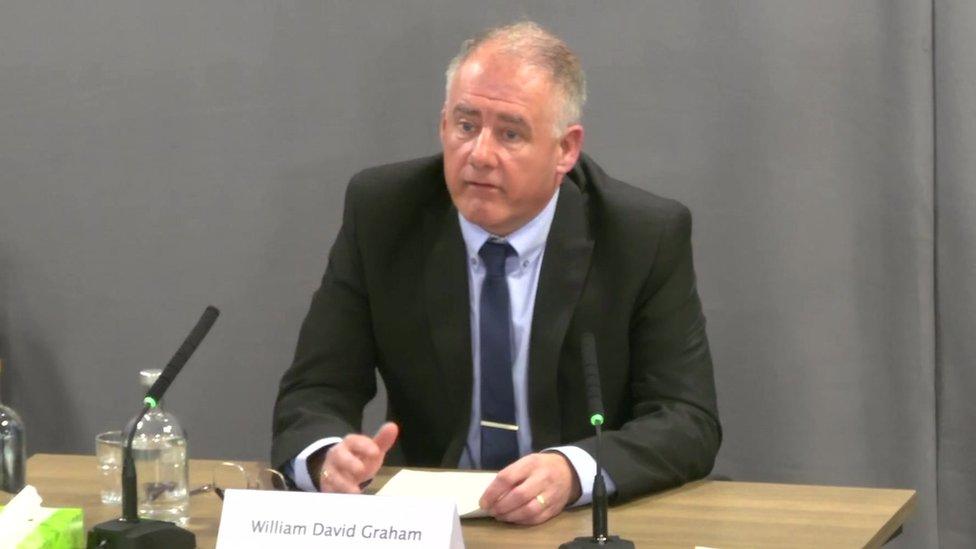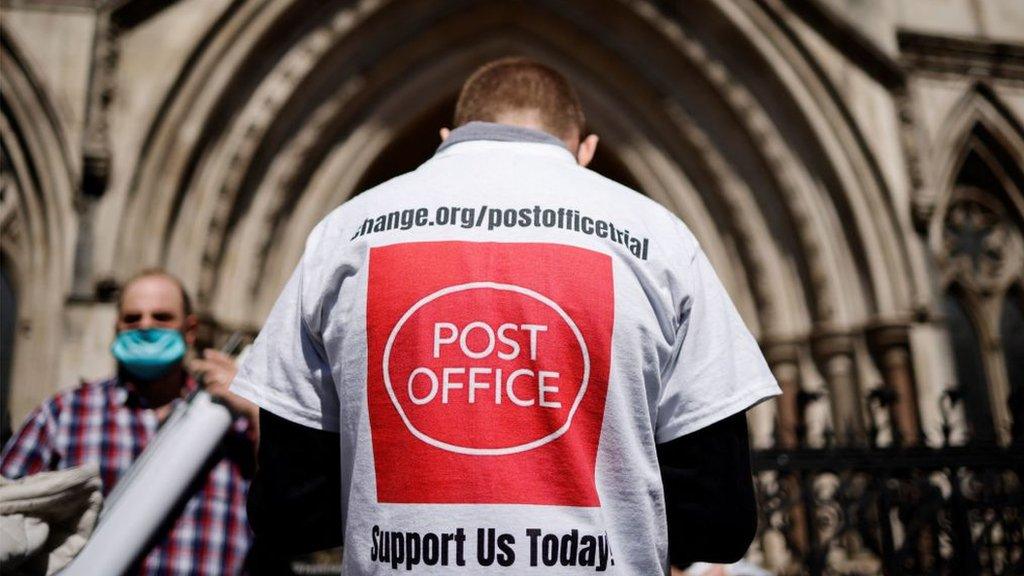'The Post Office interrogated me for hours'
- Published
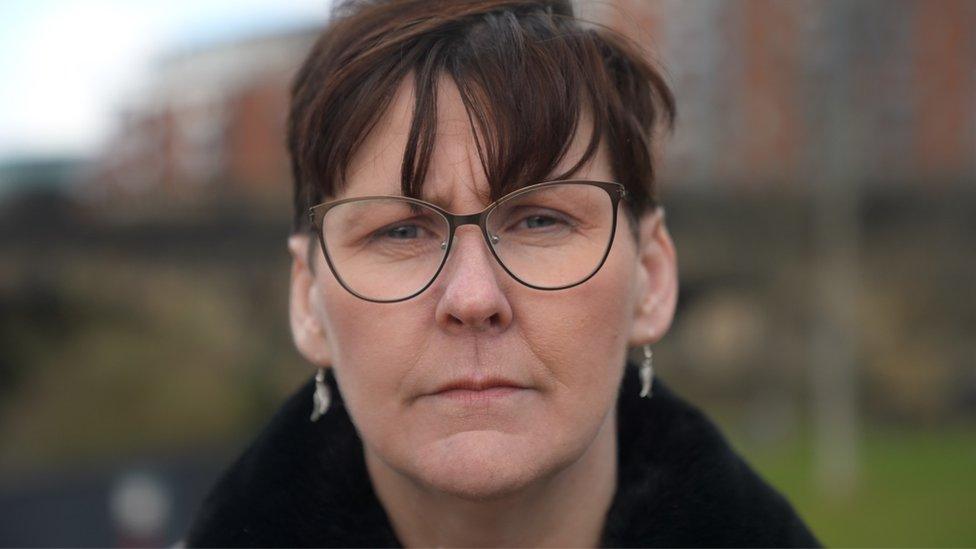
Pauline Stonehouse can never forget the interrogation she received in 2007: "They were so aggressive, I was there for hours and hours."
But it wasn't the police asking the questions of Pauline, it was officials from the Post Office, for whom she worked as a branch manager.
"Given they aren't the police, they made it feel like they were," she tells the BBC.
Like many subpostmasters at the time, Pauline had been having big problems with the accounting IT system in her branch in Seaburn in Sunderland.
Her books were not balancing in the evenings, she had gone through everything with a fine-tooth comb but couldn't spot any errors at her end.
She turned to her managers for help, but instead they sent in the investigators, and eventually prosecuted Pauline.
"The Post Office were aware then that Horizon [the IT system used by branches at the time] was having issues but they still chose to prosecute me, and that is just malicious, nasty, and all the other words you can think of that fit into that category," Pauline tells the BBC.
Pauline had two girls at home, the youngest had just turned two when she was eventually brought to court. "I was worried I would go to prison, because that was implied if I didn't plead guilty, even though I hadn't done anything wrong."
Pauline and her family had to declare bankruptcy and were made homeless. She was given a six-month community order.
It was another 14 years until she had her conviction overturned, and like more than 70 others so far, the Court of Appeal made the ruling that the Post Office had carried out a malicious prosecution.
A public inquiry is now looking into the Post Office's decision to prosecute more than 700 of its own staff over Horizon-related discrepancies, and evidence from many victims has shown that Pauline is far from alone in her experience of being investigated.
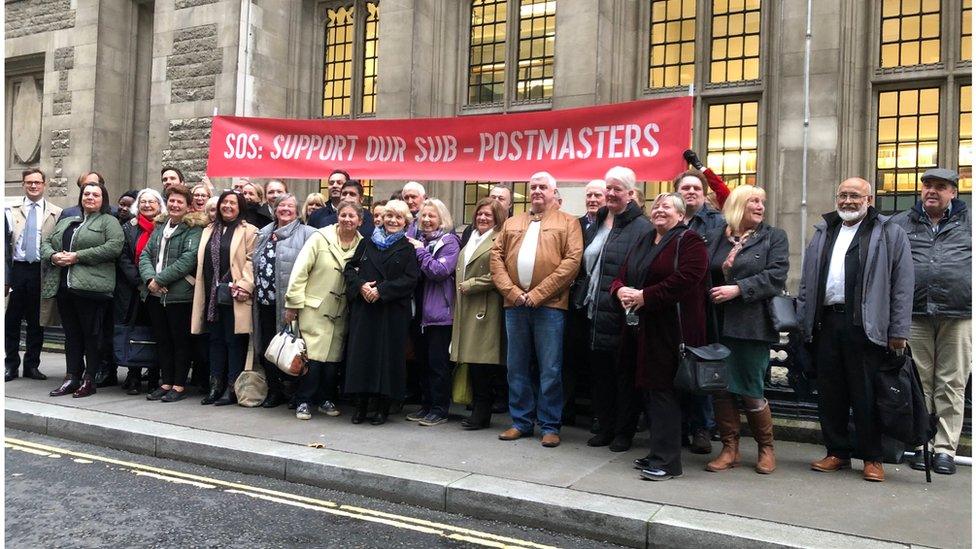
Hundreds of subpostmasters were wrongly accused of fraud in the Horizon IT scandal
Former branch manager Siobhan Sayer explained that she was told by interviewers she could not leave the room to comfort her six-month old baby who was crying in the next room. Others were told they couldn't leave to collect their children from school.
It's what's known as a private prosecution. There is no need to involve the police, and no need for the Crown Prosecution Service to decide if the evidence is strong enough to bring to court. The Post Office carried out investigations and took cases straight to court.
While it's understood that some institutions like the Home Office, the Serious Fraud Office, and the Health and Safety Executive have specialist knowledge that the police would not necessarily have, they still have to act within very strict guidelines when gathering that evidence - just as the police do.
But the fact that the Post Office prosecuted 706 employees has raised serious questions in legal spheres as to whether an organisation which considers itself the "victim" of a perceived crime should be able to gather evidence and bring a prosecution with so little oversight.
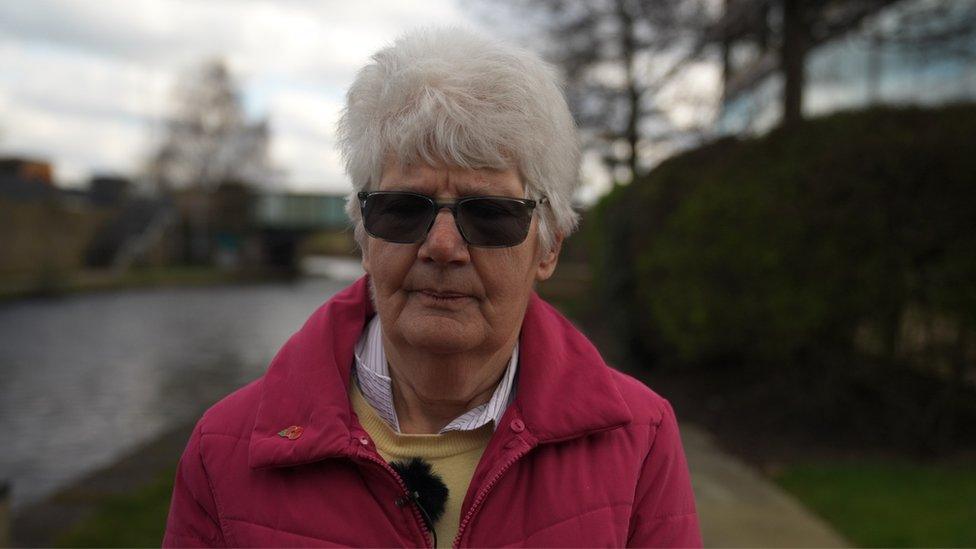
As Marion Holmes puts it, "the problem with the Post Office is that they were judge, jury and executioner." Her husband Peter died in 2015 with that conviction still hanging over him. It took another six years before his name was posthumously cleared by the courts.
Watching this evidence has made Tony Edwards furious. He's one of the UK's most prominent criminal lawyers and spent decades training the police in how to interview suspects and collect evidence fairly. He quite literally wrote the textbook.
He says the Post Office Investigations Unit should have followed the same strict rules that apply to the police. "Those investigators either didn't know or chose to not to observe the rules about making clear that people were not obliged to do anything, they were free to go, they could refuse to have their homes searched, they were not under arrest."
Mr Edwards adds that because the Post Office believed it would be able to recoup lost money through these investigations, it presented "such a conflict of interests that that right to bring a prosecution should no longer exist".
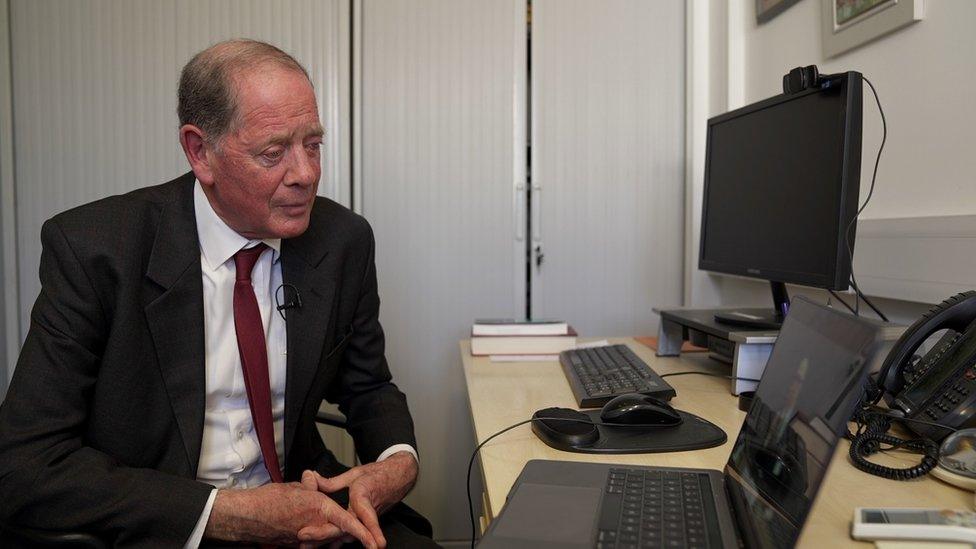
Tony Edwards says the Post Office Investigations Unit should have followed the same strict rules that apply to the police
The Post Office has told the BBC it has been "listening to the evidence given by victims in the this first phase of the public inquiry" and that those testimonies reinforce its "determination to ensure that wrongs of the past are put right".
It didn't want to comment further until after the publication of the inquiry, which is now not likely until well into 2023 due to delays in processing the large volume of information submitted. The inquiry will travel to Scotland and Northern Ireland next month to hear evidence from subpostmasters affected there.
The RSPCA has recently decided voluntarily to stop bringing private prosecutions after its activity was questioned, along with that of the Post Office, by Parliament's Judicial Affairs Committee.
The Post Office has made no such announcement, and for Marion Holmes, who is turning 80, the frustration of waiting for someone to be held to account for the treatment her husband received is all-consuming.
"I'm in danger of becoming bitter," she tells me "and I don't want to be because Peter was never a bitter man".
- Published16 February 2022
